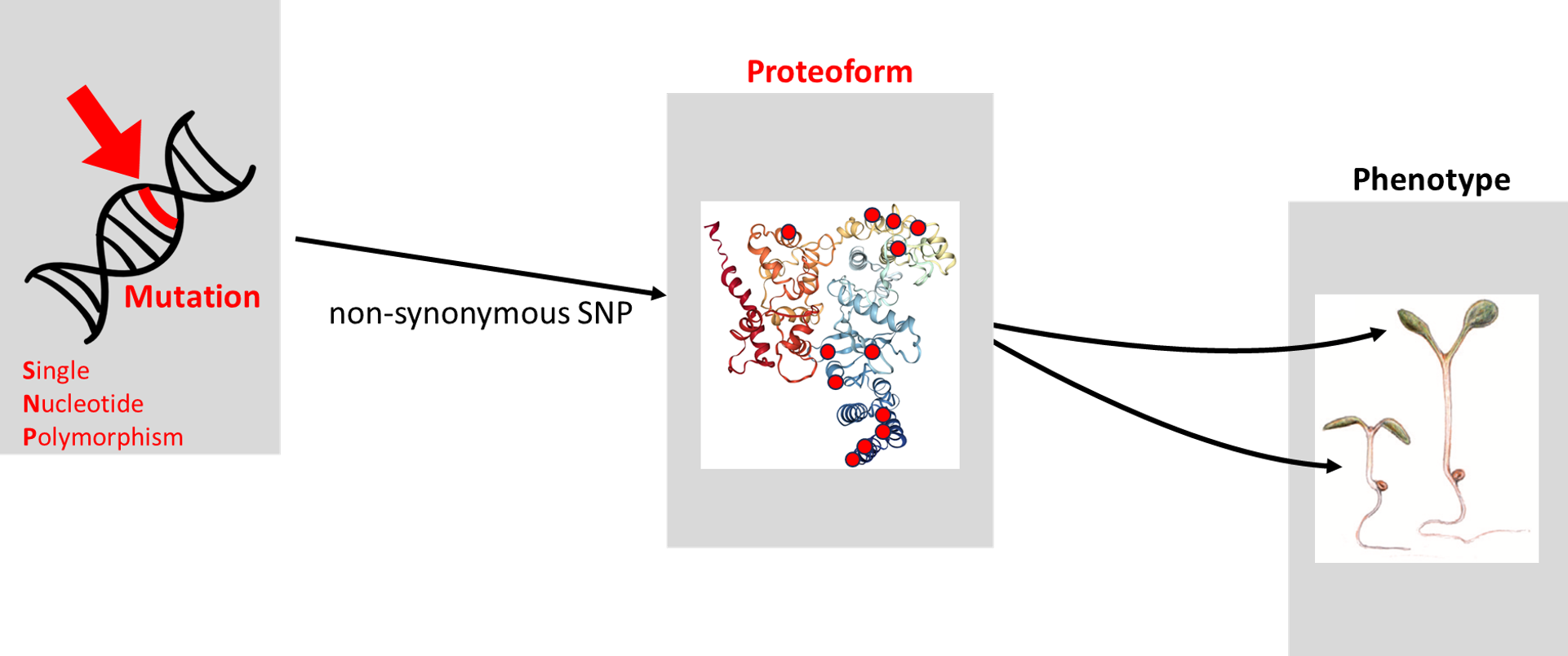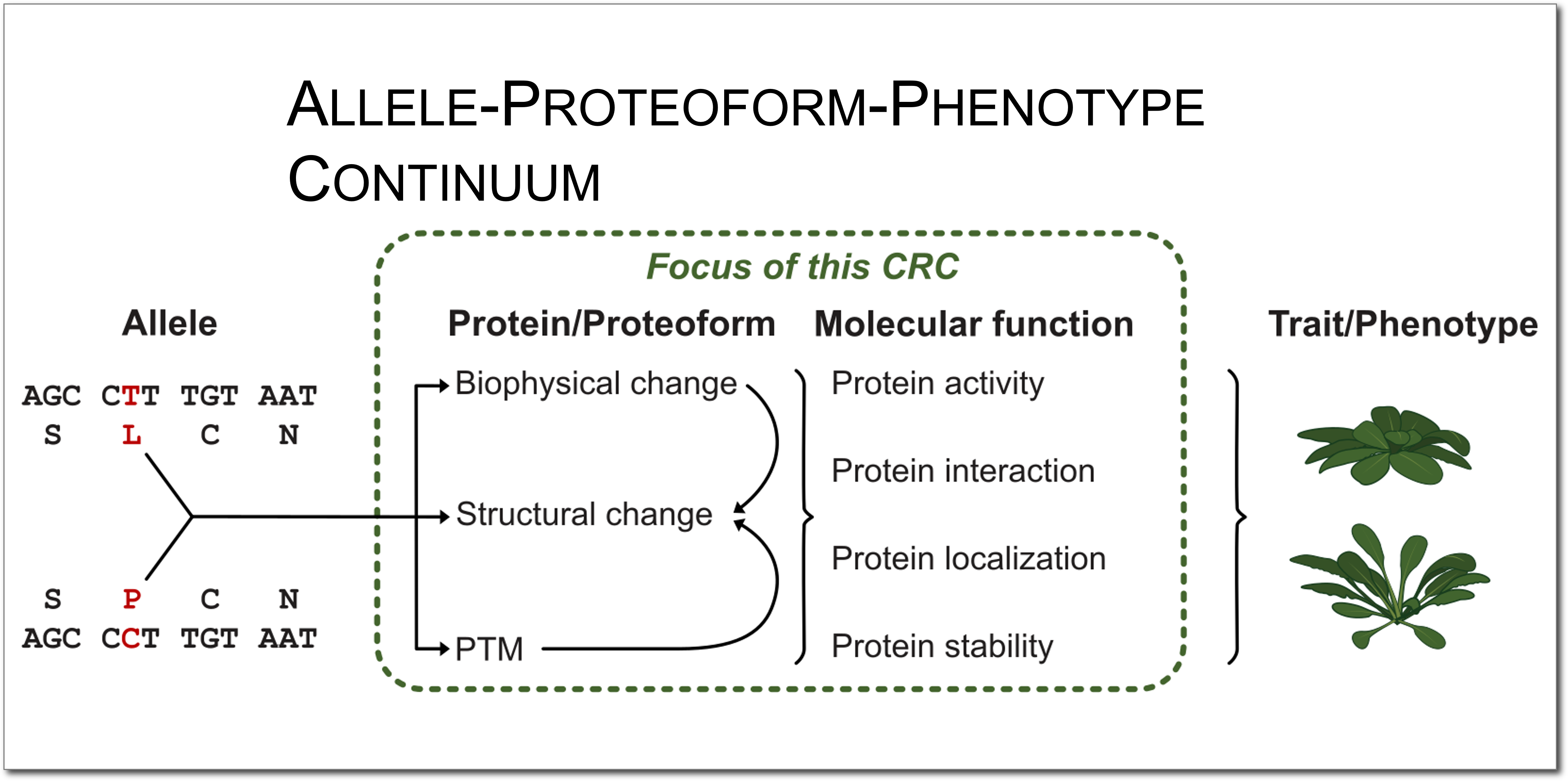Sustaining food security and nutritional quality of plant products is a continually growing global challenge. Climate change, resource limitations, population growth, and increasing societal and ecological predicaments threaten wild species and force plant production to become more resource and cost-efficient. Exploiting genome information of wild, domesticated or model plant species represents a promising approach to meet these challenges. The recent revolution in DNA sequencing technologies and advances in bioinformatics have greatly enhanced our understanding of genome organisation and facilitated gene discovery in the (pan-)genomes of numerous plant species. Parallel sequencing of natural accessions in plant populations discovered a wealth of DNA sequence variation, which mainly include a particularly prominent type of sequence variant, known as single nucleotide polymorphism (SNP).


The knowledge and interpretation of the genomic landscape of a species can both foster our understanding of evolutionary principles and be exploited for the precise generation of favorable traits. An important fraction of genomic diversity resides in protein-coding DNA sequences. When SNPs result in changes of the primary structure of proteins (e.g., non-synonymous SNPs or nsSNPs), different alleles of the same gene in a natural population thus encode different protein variants, termed proteoforms. In their native growth habitats, proteoform diversity likely enables plants to better adapt to changing natural conditions. In agricultural production systems, different proteoforms, either occurring naturally in crop plants or introduced via knowledge-based breeding programmes, may increase plant performance under different cultivation conditions.

